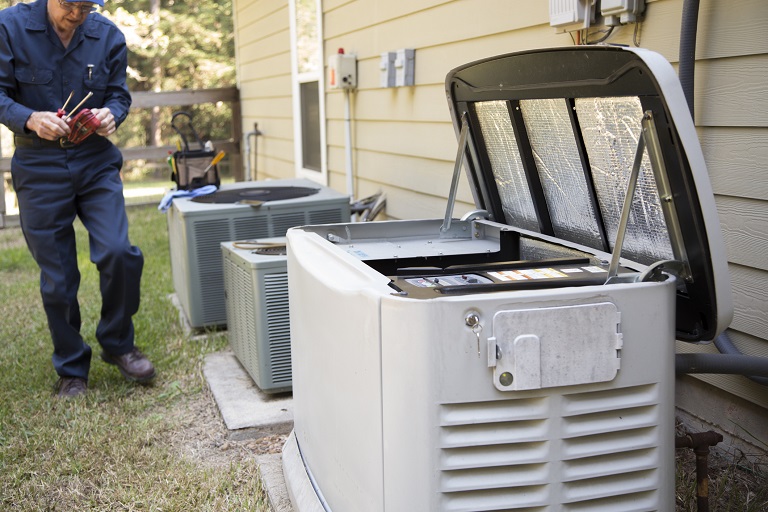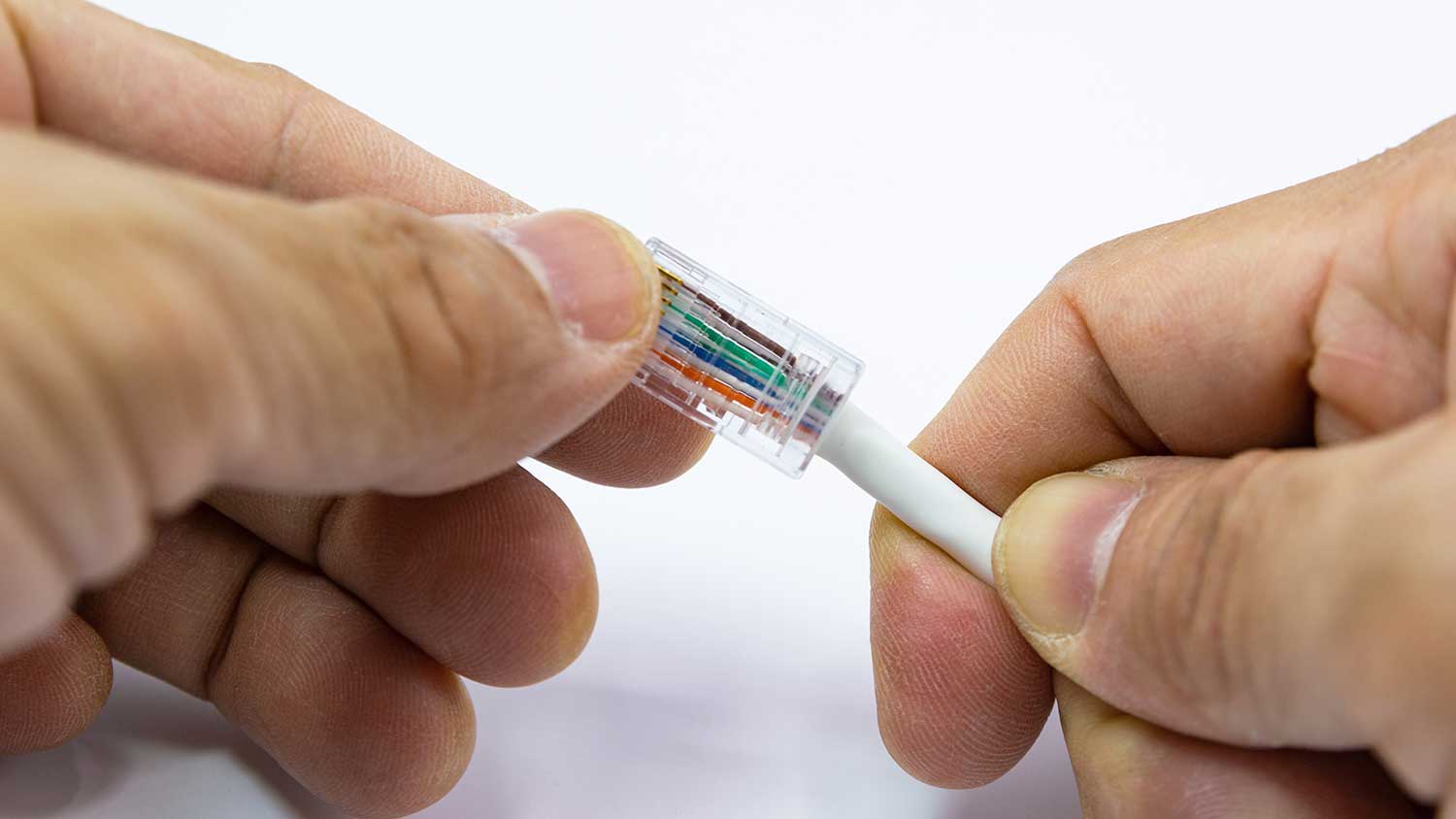
Budget for the cost to replace a light switch based on factors such as switch type, project complexity, hiring a professional electrician, and more.
The average cost of whole-house generator maintenance is $273


Generator maintenance costs an average of $273, with most homeowners spending between $172 and $395.
Factors affecting maintenance cost include generator type, size, fuel type, location, and maintenance frequency.
Regular maintenance ensures your generator operates efficiently and is ready when needed during power outages.
Proper maintenance can prevent costly repairs and extend the life of your generator.
Hiring a generator professional ensures that maintenance is performed correctly and safely.
This article was updated using automation technology and thoroughly reviewed for accuracy by HomeAdvisor Editor Ryan Noonan.
Generator maintenance costs an average of $273, with most prices ranging between $172 and $395. You can expect to pay $200 to $600 annually for annual maintenance and upkeep. Generator maintenance expenses depend on your generator's type, size, frequency of use, and more. It's important to budget for regular generator maintenance and hire a generator professional to keep your unit in top condition.
Your generator requires periodic maintenance to ensure it's ready when needed. In cold climates, annual tune-ups are essential for winter storm preparedness. When you hire a service contractor for generator maintenance, they’ll service all components to keep your unit running smoothly.
Three main factors affect the cost of generator repair: the fuel type it uses, its size, and the scope of the repair.
Each fuel type comes with its own repair and maintenance schedule:
Propane: Propane generators have fewer issues due to fewer components. Their repairs are more expensive but less frequent. Propane's long shelf life means the fuel doesn't need to be managed during disuse.
Natural Gas: Infrequent repairs are needed for natural gas generators. These systems have higher installation costs, but maintenance is the primary concern after setup.
Gas and Diesel: These fuels have short shelf lives and can clog or degrade during disuse. They require significant upkeep and repairs, with spills and overfilling being the most common issues.
Generators range in size from seven to 10 kW small models or 22 to 45 kW large units. Larger generators have more complex engineering, leading to higher repair and maintenance costs. Smaller generators are less expensive to service.
The condition of your generator determines the maintenance and repair cost. Problems with the electrical meter or power panel require a licensed electrician, increasing labor rates. Fuel tank issues may necessitate contacting your local utility company to check the fuel line connection.
The cost of maintenance varies depending on the type of generator you have. Large and small engine generators cost an average of $600, while portable generators cost $50 to maintain.
Maintaining a portable generator costs an average of $50. Less powerful than other generators, portable units are suitable for powering a couple of appliances in your home for a few hours. They require a lot of fuel, and you must keep them full to keep them working. Repairs for these units cost less than fixing permanent standby generators because they are less complex and take less time to diagnose and fix. You can troubleshoot many common issues yourself.
The top issues you’ll run into with portable generators include:
Overload: These styles can only provide a certain amount of energy. Many homeowners overload them and compromise the system. If a generator isn't working, try disconnecting an appliance or two.
Fuel and oil problems: You must monitor these units and frequently fill their oil and fuel. A system that isn't starting or shuts down during operation could be low on either. It could also be that the fuel has degraded from disuse.
Overheating or lack of air: It needs proper ventilation to continue operation. A clogged filter could cause the system to stop mid-operation or refuse to start.
Loose or bad spark plugs: If you're having difficulty getting it started, you may need to tighten or replace the spark plugs.
It costs an average of $600 to maintain a standby generator. These units are permanent fixtures that connect to a natural gas or propane line. Some will sustain a few appliances, while others can power your entire home if necessary. You may encounter many of the same issues with a portable unit. Still, some problems are unique to this type, such as:
Overfilled Tank: Overfilling can cause fuel overflow, creating a fire hazard if fuel contacts the hot engine.
Battery Failure: Sulfate buildup on battery plates reduces current. Replace the battery every three years. Loose connections or buildup can also cause failure.
Carburetor Clog: A clogged carburetor leads to failure to start or poor performance. Repair requires professional disassembly of the engine.
Spark Plugs: Bad spark plugs are common and can prevent the generator from starting.
Leaks: Generators can leak coolant, fuel, and oil. Fuel leaks occur when not used at full capacity. Coolant leaks from block heater hoses if they can't handle the temperature.
In most cases, your generator stops working because of a specific part. Diagnosing and repairing that part is more beneficial and cost-effective than a complete generator installation cost. In some cases, complete engine repair could send your budget into the thousands.
| Generator Part | Average Repair Cost |
|---|---|
| Stator and rotor | $250–$1,500 |
| Carburetor | $60–$500 |
| Engine | $50–$2,000 |
| Voltage regulator | $80 |
| Transfer switch | $50–$400 |
A stator and rotor set cost between $250 and $1,500. The rotor moves inside the stationary stator to generate electricity. When they stop working correctly, they require repair or replacement.
The carburetor mixes air and fuel to create the proper combustion ratio. Minor problems, such as a loose gasket, can be easily repaired for less than $50. Complete carburetor replacement will cost between $60 and $500.
The engine is the most important component of your generator. Repairing small parts of your generator's engine can cost as little as $50, but more comprehensive jobs can be more than $2,000.
Voltage regulators are crucial for maintaining consistent voltage output, especially when connecting major appliances to your generator. A new voltage regulator costs an average of $80, plus the cost to hire an electrician.
Repairing an existing transfer switch will cost between $50 and $200, depending on the exact problem. If the problem is significant, consider paying to replace the transfer switch, which will be between $200 and $400, plus three to four hours of electrical labor.
While it’s possible to handle basic generator upkeep yourself, such as checking oil levels or replacing air filters, most maintenance tasks are best left to the professionals. Generators are complex electrical systems that require specialized knowledge to diagnose issues, make repairs, and replace components. Attempting advanced repairs without the proper training can be risky and lead to further damage. Hiring a qualified local generator professional ensures your unit is serviced safely and effectively.
No place is more important than your home, which is why HomeAdvisor connects homeowners with local pros to transform their houses into homes they love. To help homeowners prepare for their next project, HomeAdvisor provides readers with accurate cost data and follows strict editorial guidelines. After a project is complete, we survey real customers about the costs to develop the pricing data you see, so you can make the best decisions for you and your home. We pair this data with research from reputable sources, including the U.S. Bureau of Labor Statistics, academic journals, market studies, and interviews with industry experts—all to ensure our prices reflect real-world projects.
From average costs to expert advice, get all the answers you need to get your job done.

Budget for the cost to replace a light switch based on factors such as switch type, project complexity, hiring a professional electrician, and more.

Estimate the cost to rewire a house based on the key factors. Our guide covers different wire types, permits, and ways to save on electrical system upgrades.

Unsure who can fix a generator? Learn whether to hire a generator technician or electrician and what affects repair costs—start your search now.

Wondering who can install recessed lighting? See who to hire, other pro options, steps, and costs to plan your project confidently.

Who can run ethernet cable through walls? Learn whether to hire an electrician or general contractor, what to expect, and how pros get it done.

Learn who to call for electrical problems—electrician or power company—and when to get help. See pro steps, safety tips, and hiring guidance.